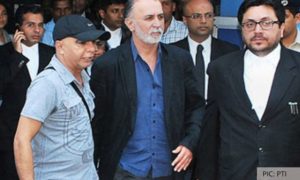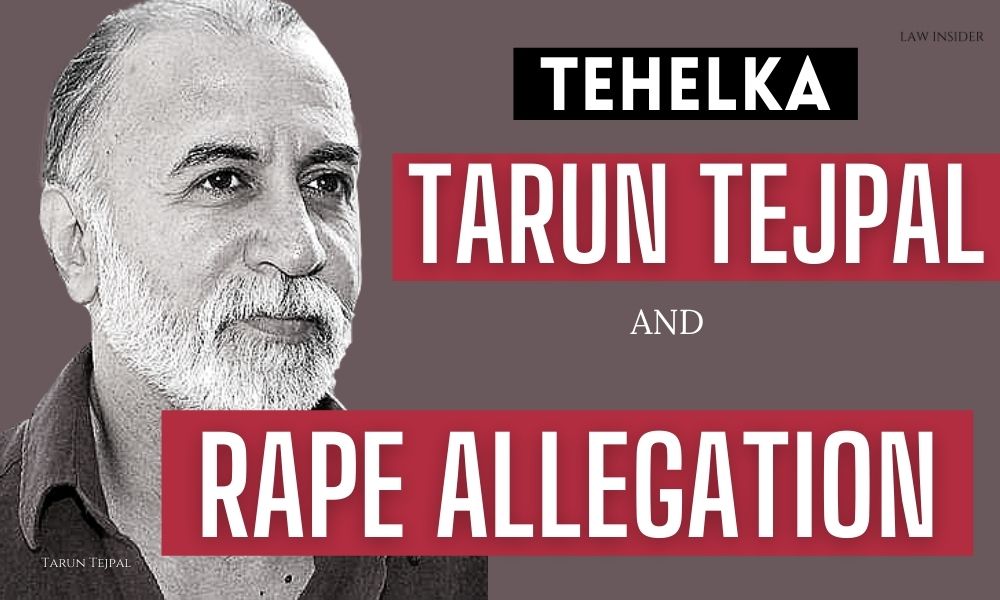By Meher Sunil Dabrai-
Rape is one of the most heinous crimes one can ever commit in today’s world. It has been estimated that only around 15% of rapes are reported to the police. Of the cases that are reported to the court, the odds are still in favour of a “not guilty” verdict. Out of the 97,000 rapes that happen every year, less than 6% end in conviction.
Section 375 of the Indian Penal Code defines rape as
“Sexual intercourse with a woman against her will, without her consent, by coercion, misrepresentation or fraud at a time when she has been intoxicated or duped or is of unsound mental health and in any case if she is under 18 years of age.”
In India, a person guilty of committing rape is punished with imprisonment of not less than seven years which may also extend to imprisonment for life and shall also be liable to fine. In aggravated situations it may also be rigorous imprisonment for a term which shall not be less than 10 years but which may extend to imprisonment for life and shall also be liable to a fine.
This article throws light upon one such rape case that has been in the headlines recently. This case is popularly known as the Tarun Tejpal Rape case.
Who is Tarun Tejpal?
Tarun Tejpal is the former editor in chief of a popular investigative tabloid named “Tehelka” which was founded by him the year 2000. Apart from being a journalist, he is also an author and has worked with several leading media networks in the country.

He is the author of three bestselling books. One of his books named as “The Story of My Assassins” has also become an extremely popular Amazon Prime web series called “Paatal Lok”. He also owns a publishing house called India Ink.
What is Tehelka and why it made “Tehelka” several times?
Tehelka is an Indian news magazine famous for investigative journalism. Tarun Tejpal and Aniruddha Bahal founded Tehelka. In Hindi Tehelka means Exitement, Panic, Commotion and Scare which Tehelka Magazine several times made.
Tehelka made headlines for the first time when it released footage relating to the 2002 Riots in Gujarat.
Sting operation done by Tehelka on BJP President Bangaru Laxman is amonst the biggest political expose so far which caught on camera.

In the Sting Operation in 2001 BJP president Bangaru Laxman seen accepting money.
This Sting sparked a political storm following which Bangaru Laxman resigned as BJP chief and later convicted for the same.

Background
Tarun Tejpal was accused by a female colleague of sexual assault in an elevator of a luxury hotel in November 2013 during the Think festival that was being hosted by Tehelka at a five star hotel in Goa’s Bambolim while he was the editor in chief.
A few days after the incident, the victim complained to Tehelka’s managing editor at the time who was an acclaimed journalist named Shoma Chaudhry. The next day, Tejpal sent a formal apology to the victim in which he said:
“I apologize unconditionally for the shameful lapse of judgement that led me to attempt a sexual liaison with you on two occasions on November 7 and November 8, 2013 despite your clear reluctance that you did not want such reluctance from me”[1]
He also wrote back to managing editor in which he referred to the incident as a “bad lapse of judgement, an awful misreading of the situation, have led to an unfortunate incident that rails against all we believe and fight for”[2]
However, the victim insisted that an anti-sexual harassment cell should be set up under the Vishakha guidelines to investigate the matter. To allow a fair internal inquiry as per the guidelines, Tejpal eventually stepped down from the editor’s post for the next six months.
Meanwhile, the Goa Police took suo motu cognizance (action taken of their own accord) cognizance of the allegations and registered a complaint as soon as it reached the headlines.
This was when Tejpal first alleged that he was being framed and that the case was merely a political conspiracy against him, especially since the BJP was the ruling party in Goa and the reason he and Tehelka shoot to fame in 2001 was through a sting operation called Operation West End that had exposed the ruling party incorrupt defense deals and forced the exit of the BJP president Bengaru Laxman and the defence minister George Fernandes.
The case
He was charged by a district court in Mupasa for the following sections of the Indian Penal Code:
- Section 354-A- sexual harassment
- Section 376- rape
- Section 376(2)(k)- rape of a woman by a person being in apposition of control or dominance over the woman
The police later also added more charges under the Indian Penal Code:
- Section 341- wrongful restraint
- Section 342- wrongful confinement
- Section 376 C-sexual intercourse by a person in authority
- Section 354- assault or criminal force to a woman with the intent to outrage her modesty

Tejpal was arrested on November 30th in the year 2013 after a local court in Goa rejected his anticipatory bail application. He was granted regular bail by the Supreme Court less than a year later in July 2014. In February 2014 the Goa Police Crime branch filed an almost 3000 page charge sheet against him. The e-mail written by him to Shoma Cahudhary was produced as “evidence” against him in the matter.

During the hearing in the Bombay High Court in December 2017, Tejpal said that his letter of apology was drafted and demanded by Shoma Chaudhary and he was only asked to sign it. Following this, in the year 2014, he approached the Supreme Court to seek bail in the case. He was granted the bail by the Supreme Court.
In 2017, the Sessions Court allowed Tejpal’s application to conduct the trial in-camera (in private, in the absence of the public and the press) to protect the dignity, respect and privacy of both the parties. The victim testified against him in March 2018.
The prosecution examined 71 witnesses and cross-examined five defence witnesses in the case. Apart from this, the prosecution relied on the victim’s statement, the statements made by her colleagues and electronic evidence in the form of CCTV footages, WhatsApp messages and e-mails.
The case went on for a few years following that after which, in the year 2019, the Supreme Court rejected Tejpal’s plea for the quashing of charges against him. The Supreme Court bench of Justices Arun Mishra, M R Shah and B R Gavai SC termed the offence as “morally abhorrent” and “assault on the privacy of the victim”. During this hearing, the bench also directed the Sessions court to complete the trial within six months.
The court was unable to pronounce the judgement due to the sudden Covid-19 lockdown in the year 2020. After this, the court was supposed to pronounce its judgement on April 27th but was then adjourned to May 12 due to shortage of staff during the second wave of the pandemic. It was then adjourned to May 19th because of cyclone Tauktae and then to May 21 when the court acquitted Tejpal in the case.
The Judgement
Since the acquittal has come despite the fact that Tejpal had acknowledged in an email to the victim soon after the incident that he did not have her consent for his sexual acts, the State has decided to file an Appeal against the acquittal. While Tejpal may be a free man for now, the final verdict is yet to be decided following the appeal that will be filed in the matter by the State.
Conclusion
It has been rightly said that “A murderer destroys the physical body of the victim; a rapist degrades the very soul of the helpless female.”
In this case, it became a social scandal because the accused had a repute of being a fearless editor who held sting operations and pursued cases of corruption in high places through sting operations which had far reaching repercussions on various governments and politicians.
Those who stood up for the victim felt that this was a standard case where a man in a position of power was misusing his position to take advantage of young women who are his colleagues or younger women that are working for him. The fact that the young woman was also a daughter of a well-known and well reputed former colleague of Tejpal added to the moral outrage.
Many legal experts are of the opinion that in many cases of sexual assault, the moral sentiment weighs in and the legal aspect is not given sufficient credence.
In the public opinion, it is clear that it is not a black and white case and there have been many points of evidence that could not be clarified. After all these years of twists and turns in the case, the judge had no option but to throw out the charge due to lack of clear evidence to support it. It is only through a closer reading of the judgement that the reason of the acquittal can be understood.
References
- Goa Court Acquits Tarun Tejpal in 2013 Rape Case, State Says It Will Appeal Verdict
- Goa Court Acquits Tarun Tejpal in 2013 Rape case
- Goa Court Adjourned Tarun Tejpal Rape Case Verdict to May 21

